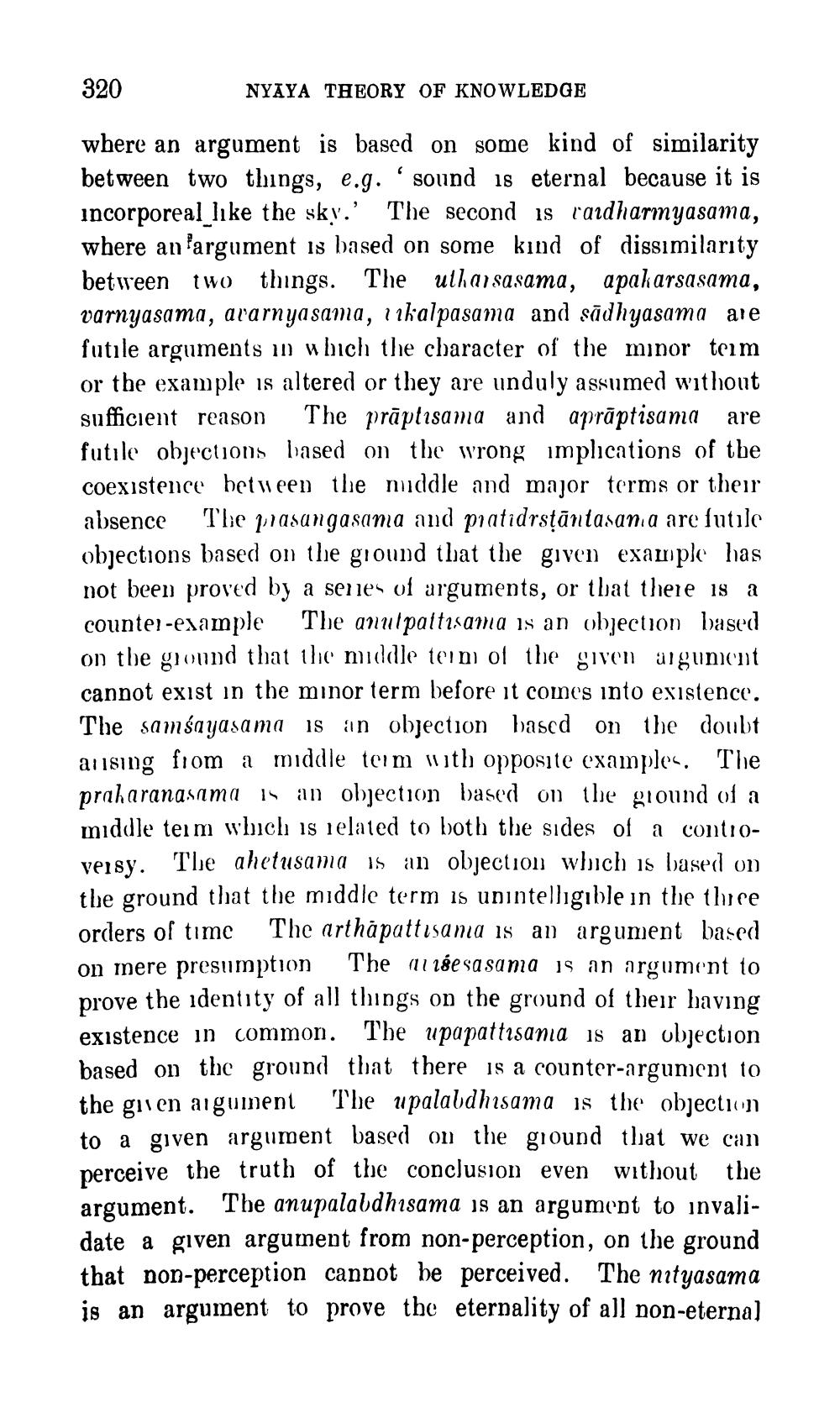________________
320
NYAYA THEORY OF KNOWLEDGE
where an argument is based on some kind of similarity between two things, e.g. 'sound is eternal because it is incorporeal_lıke the sky.' The second is cardharmyasama, where an 'argument is based on some kind of dissimilarity between two things. The ulharsasama, apakarsasama, varnyasama, ararnya sama, izkalpasama and sādhyasama are futile arguments in which the character of the minor tem or the example is altered or they are unduly assumed without sufficient reason The prāptısama and aprāptisama are futile objections based on the wrong implications of the coexistence between the nuddle and major terms or their absence The pasangasama and piatidrsțāntasana are sutile objections based on the ground that the given example has not been proved by a series of arguments, or that there is a counter-example The anulpattısama is an objection based on the ground that the middle tein of the given argument cannot exist in the minor term before it comes into existence. The samśayasama is an objection based on the doubt arising from a middle tem wth opposite examples. The praharanasama is an objection based on the ground of a middle tem which is related to both the sides of a contioversy. The ahetusama is an objection which is based on the ground that the middle term is unintelligible in the three orders of time The arthāpattisama is an argument based on mere presumption The 11 28e sa sama is an argument to prove the identity of all things on the ground of their having existence in common. The upapattısania is an objection based on the ground that there is a counter-argument to the guien aigument The upalabdhisama is the objection to a given argument based on the ground that we can perceive the truth of the conclusion even without the argument. The anupalabdhisama is an argument to invalidate a given argument from non-perception, on the ground that non-perception cannot be perceived. The nityasama is an argument to prove the eternality of all non-eternal




